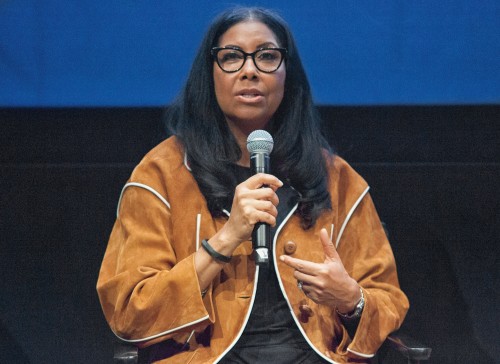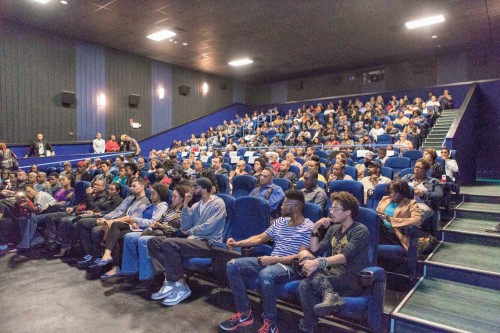Since the HIV-themed romantic film 90 Days premiered last year at the NAACP Image Awards, it has sparked discussions at festivals, churches and conventions across the country. The 20-minute movie screened in Harlem, New York, on World AIDS Day, December 1, and was followed by a town hall meeting that was live streamed on social media. The film will be released digitally in 2018; for more, visit 90DaysTheFilm.com. POZ spoke with writer-director Nathan Hale Williams about his stigma-busting project.
What compelled you to make this film?
I wrote the film because a dear friend (whose name is Nathan as well) really felt that he was going to be unable to find love after being diagnosed. Unfortunately, Nathan took his own life in 2015, giving me even more reason to write this film. It is my love letter to all the Nathans out there. Also, I have been doing HIV/AIDS advocacy work for nearly 15 years, and I found that there is a disconnect, particularly in communities of color, between the actual state of the virus and people’s perceptions about it. I believe a lot of this fuels the stigma, which in turn fuels the high rate of infection and nontreatment within the community. That said, the film touches everyone. The message is that love is greater than anything, including HIV.
What do you hope to accomplish with the film?
We want to bring the conversation [about HIV] back to the center in the community. We believe that entertainment has a way of educating and changing minds that other mediums don’t. The first lady of Imani Temple Ministries in Cleveland best summed up the mission. After screening the film in her church, she said, “This is the first time HIV/AIDS has been humanized for me.”
What have been some other reactions?
The way the film ends is purposely set up for discussion. So much so that no one wants the discussion to end. Many people are shocked by some of the information conveyed about HIV-positive mothers [being able to have HIV-negative babies] and about PrEP and PEP [pre- and post-exposure prophylaxis]. They’re also encouraged by the manner in which the film tackles the subject. It is certainly not depressing or sad. [The female lead] is empowered, confident and successful. She epitomizes what healthy living in treatment should represent.

The film’s cast and creators at screenings and discussions.Courteys of 90DayTheFilm.com

Cookie JohnsonCourteys of 90DayTheFilm.com

The film’s cast and creators at screenings and discussions.Courteys of 90DayTheFilm.com

Audiences at screenings and discussions.Courteys of 90DayTheFilm.com







1 Comment
1 Comment